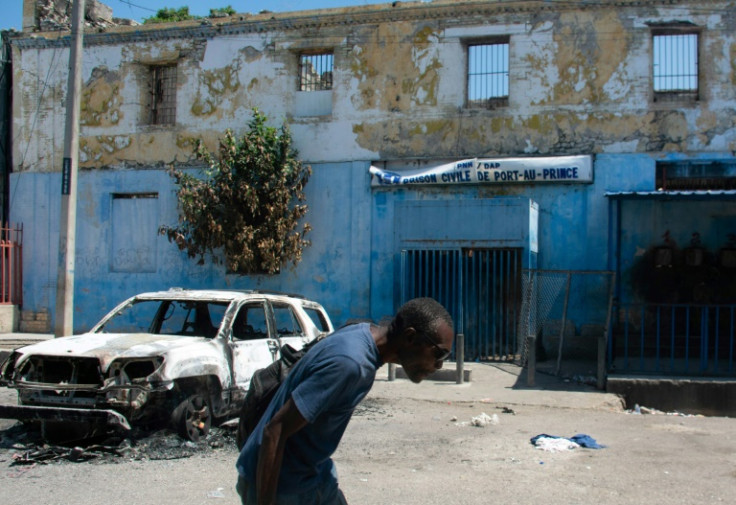
Haiti's police academy came under attack by an armed gang Tuesday as the tiny Caribbean nation fell into deeper isolation in the wake of an assault on the airport and a deadly prison breakout.
The attack on the academy, where more than 800 cadets are training, was repelled after the arrival of reinforcements, said Lionel Lazarre of the Haitian police union.
The latest violence followed the evacuation of thousands of residents from the capital Port-au-Prince, with the United Nations and Washington reiterating their concerns over the crisis.
Toussaint Louverture International Airport in Port-au-Prince has been heavily impacted by the violence, including an attempted assault late Monday in which a police station was set ablaze.
On Tuesday the Dominican Republic, which shares the Caribbean island of Hispaniola with its troubled and impoverished neighbor, said it was halting all flights to Haiti.
The Civil Aviation Board said in a statement that it was suspending "with immediate effect passenger and cargo air operations to and from the Republic of Haiti."
The armed groups controlling much of Haiti have wreaked havoc for months, with attacks on strategic sites growing since last week.
The gangs say they want to overthrow the disputed prime minister, Ariel Henry, who was out of the country at the weekend for a trip to Kenya to push for the deployment of a UN-backed multinational police mission to try to stabilize Haiti.
Henry's current whereabouts are unknown.
Lack of security at the Port-au-Prince airport has prevented Henry's return home as of Tuesday, according to local media Radio Tele Metronome.
In power since 2021, Henry had been due to step down in February but agreed to a power-sharing deal with the opposition until new elections are held.
With Henry away, the gangs raided two Port-au-Prince prisons, in attacks that resulted in a dozen deaths and the escape of thousands of inmates.
In response the government declared a state of emergency and a night-time curfew, which has been extended through Wednesday.
The "escalation of violence" has prompted at least 15,000 evacuations in the worst-hit parts of the capital, said Stephane Dujarric, spokesman for United Nations Secretary-General Antonio Guterres, adding that aid workers have begun distributing food and other essentials at three new sites for the displaced.
Due to limited movement the UN teams on the ground have been unable to report a death toll from the latest violence, Dujarric told reporters in New York.
Meanwhile the UN Security Council has scheduled a closed-door meeting Wednesday to discuss the Haiti crisis. Maria Isabel Salvador, the UN representative in Haiti, will brief the council remotely.
After being brought to a virtual standstill, Port-au-Prince appeared to be returning to some semblance of normalcy Tuesday, although certain streets remained barricaded with debris placed by residents in an attempt to protect themselves.
Some transportation has resumed and shops have reopened, with long queues seen outside of stores, banks and at petrol stations.
In Washington, the State Department renewed a call for calm.
"We urge all actors to put the people of Haiti first, stop the violence and make the necessary concessions to allow for inclusive governance, free and fair elections and the restoration of democracy," spokesman Matthew Miller told reporters.
He declined to address the whereabouts of Haiti's prime minister.







